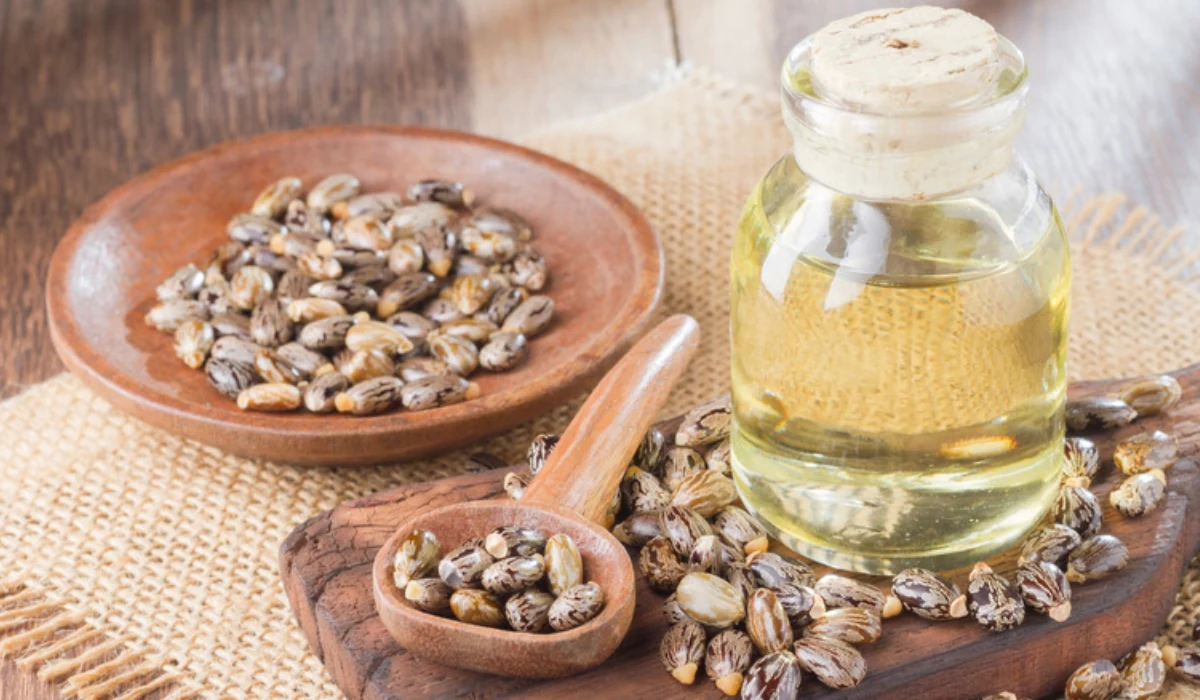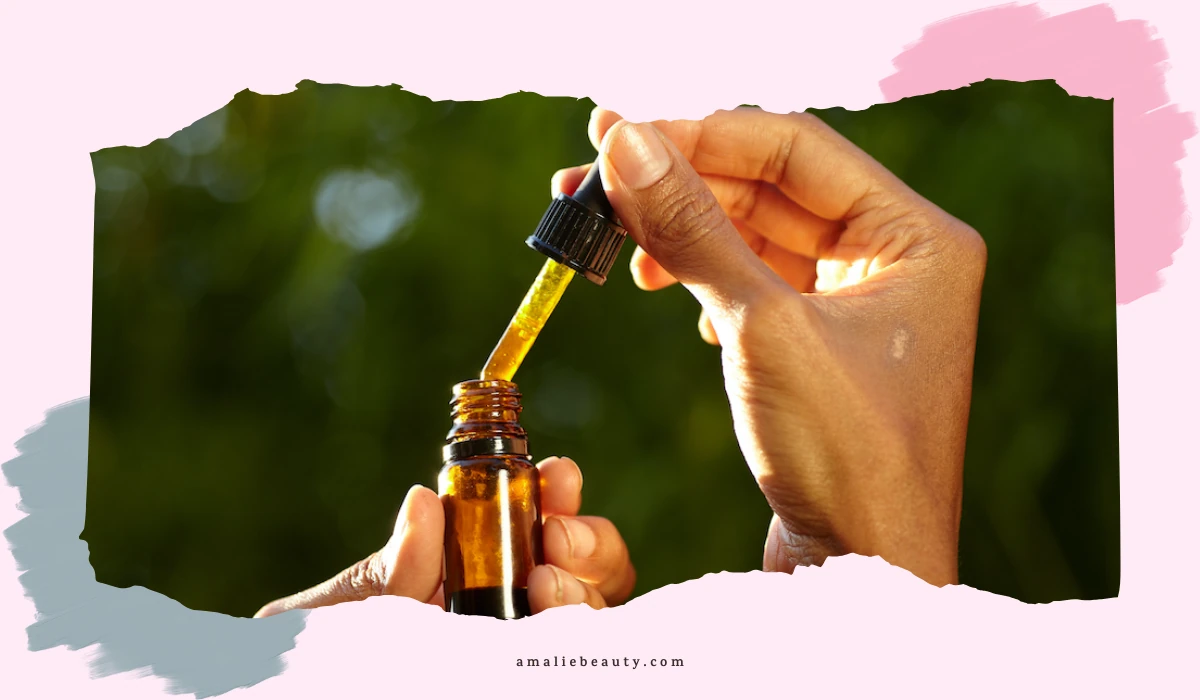Are you someone suffering from the nagging problem of eczema? According to the National Eczema Association, a whopping 31.6 million people i.e. 10.1% of the U.S. population have some form of eczema. Castor oil, best known for its laxative properties is a natural oil that can come to your aid in treating eczema. In this article, we introduce you to how castor oil is used for eczema and whether it is effective.
Top 5 benefits of castor oil in treating eczema symptoms
The major benefits of castor oil in treating eczema symptoms are as follows.

1. Soothes your skin
With the presence of natural antioxidants such as tocopherols, castor oil comes with anti-inflammatory properties. Thus it acts as a protective barrier against skin inflation during times of eczema flare-up. The other benefits include smoothening and softening your skin.
2. Offers relief from pain
As you know, one of the major symptoms of eczema is itching. This in turn can lead to other problems such as pain and inadequate sleep. Castor oil works in such a way that its pain-relieving properties provide you relief from discomfort.
3. Curbs accelerated skin growth
As in the case of psoriasis, the hallmark of eczema is also keratinocyte hyperproliferation. The antiproliferative properties of castor oil are effective in managing excessive skin growth.
4. Moisturizes your skin
As someone suffering from eczema, you will be having damaged skin barriers. Due to this reason, it becomes more difficult for your skin to retain water. Thus you will be more vulnerable to bacteria and allergens. For the unknown, castor oil is a fatty emollient. Emollients act against damaged skin barriers by providing permeability and improving skin repair. According to experts, castor oil is an occlusive moisturizer. The major benefit of being an occlusive moisturizer is that it reduces water loss through the epidermis thus playing the role of a barrier.
5. Kills bacteria and accelerates skin healing
Do you suffer from cracked and broken skin which are some of the common symptoms of eczema patients? If yes, then you stand a higher risk of skin infections. Due to its antimicrobial and wound-healing properties, castor oil helps kill bacteria and makes the process of skin healing faster.
A study conducted in 2021 showed that when a castor oil-derived biocidal agent is used in wound dressing, it makes healing possible by promoting fibroblast cell migration, an essential process in repairing wounds.
It also encourages collagen maturation which aids in providing structure for skin strengthening. Last, but not least, a castor oil-derived biocidal agent provides vascularization to the damaged area, bringing oxygen and nutrients that help in the growth of blood vessels and accelerate skin healing.
How to use castor oil for eczema?
Not much scientific guidance is available on how to use castor oil to get relief from eczema symptoms. However, according to anecdotal evidence, the following methods can be tried out.
1. Mix castor oil with other oils
Since castor oil is very thick, most people mix it with other oils while using it for treating eczema symptoms. These options range from coconut oil, olive oil, and almond oil. The ideal proportion would be a 1:1 mixture of castor oil with the other oil.
2. Keep your skin clean
Before you proceed to apply the mixture, make sure that your skin is clean. The best way to do this is to wipe the area clean or apply the cloth post your bath or shower.
Also ensure that you apply a moisturizer to the skin immediately after showering, taking a bath, or washing hands. The reason is that your skin will be wet and it will help lock in hydration.
3. Apply castor oil with a cloth
Though you can apply castor oil directly onto your skin, a much more effective option is to apply it with a cloth as it will help lock in the moisture. To start with, soak a small cloth in the oil mixture you have already prepared. It should be followed by applying the cloth to the affected area. The next step is to cover that area of the skin with another cloth or plastic sheet to lock in the moisture.
Due to castor oil’s thick nature, it may take some time for your skin to absorb it. Thus, it is better to apply the lotion at night before going to bed so that there will be ample time.
Is castor oil effective in eczema treatment?
To date, no studies have proven emphatically that applying castor oil can lead to a reduction in eczema symptoms. To add on, some treatments marketed for eczema treatment that contain castor oil as one of its ingredients may be effective to an extent in helping the condition.
A review of studies was conducted in 2018 regarding several marketed creams. Of the two that contained castor oil, researchers came up with the finding that one of the creams prevented eczema flares and improved flares in the event of its occurrence.
However, the other cream offered relief from symptoms in one study but not in the other. It is to be noted that in neither of the creams, castor oil was listed as an active ingredient.
Side effects of castor oil
Though castor oil is generally considered safe for the skin, it may irritate some people. Thus, before applying castor oil to a large area of your skin, it is recommended to conduct a patch test.
Also, keep in mind that some people may be allergic to castor oil. If you experience any kind of itching, swelling, or difficulty breathing after applying it, rush to your doctor immediately.
Conclusion
Hope now you have more clarity on how to use castor oil for eczema. However, when it comes to its effectiveness, there are differing views and there is no concrete evidence to state that castor oil is a sure-shot solution in the treatment of eczema.

